Ruth Rendell, Harm Done
£70.00
Ruth Rendell will always be treasured for her outstanding contribution to crime fiction. It is not always recognised that her writing pushed the boundaries of crime further and she inspired many to follow her into crime writing, such the late Michael Dibden and Val McDermid. This is a much loved Inspector Reg Wexford story and our signed edition contains an appreciation by the late creator of “Rumpole of the Bailey”, Sir John Mortimer.
In Stock: 3 available
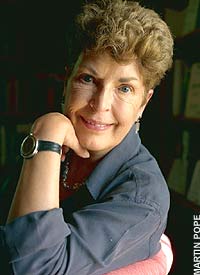
 Ruth Rendell began her esteemed Wexford police procedural series with From Doon to Death (1964). Her output has been prolific, high quality and its subject matter increasingly exposed important social concerns. Ruth kept her work fresh by alternating between Wexford and the Kingsmarkham setting, and the blacker urban psychological thrillers, and from the 80s her deeper more expansive, Barbara Vine novels. The Inspector Wexford books were however, her first work rooted in the classical detective story.
Ruth Rendell began her esteemed Wexford police procedural series with From Doon to Death (1964). Her output has been prolific, high quality and its subject matter increasingly exposed important social concerns. Ruth kept her work fresh by alternating between Wexford and the Kingsmarkham setting, and the blacker urban psychological thrillers, and from the 80s her deeper more expansive, Barbara Vine novels. The Inspector Wexford books were however, her first work rooted in the classical detective story.
“The interplay between the central character, Wexford – senior in years and rank, pragmatic, yet imaginative – and (Mike) Burden -straight-laced and somewhat inflexible – is an important attraction of these works. Their acerbic comradeship, both personally and professionally fulfilling, brings each man vividly to life, and their relationships with their families supply wide ranging complications and subplots.” [Twentieth Century Crime & Mystery Writers, third edition].
Harm Done (1999) interweaves several related contemporary social themes–missing children, the return to the neighbourhood of a convicted child molester and the reaction of residents, spousal abuse–along with several lesser mysteries and one larger, more serious one.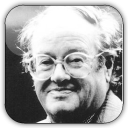
The esteemed crime writer and novelist Sir John Mortimer had long been a Ruth Rendell fan and he gives a tender appreciation of her skills as a novelist. He is remembered as the creator of the “Rumpole of the Bailey” television and radio series.
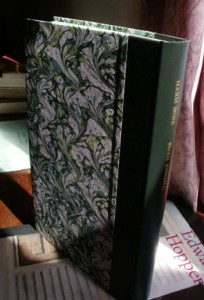
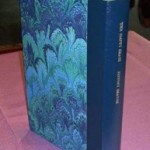 Jeffrey Deaver, The Empty Chair
Jeffrey Deaver, The Empty Chair
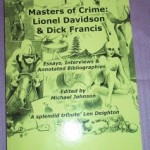 Masters of Crime: Lionel Davidson & Dick Francis – essays, interviews, bibliographies (ed. M Johnson) paperback
Masters of Crime: Lionel Davidson & Dick Francis – essays, interviews, bibliographies (ed. M Johnson) paperback

Rating by Kirkus Review on April 19, 2012 :
HARM DONE (reviewed on October 15, 1999)
“Kingsmarkham, where Chief Inspector Wexford labours in the interests of law and order, is one of those small English towns that’s picture-postcard placid on the surface, a cauldron underneath. On any given Saturday, for instance, there’s enough sheer wickedness roiling and moiling to keep Satan smiling and honest cops hopping over the course of a long and distinguished series (Road Rage, 1997, etc.). On this particular Saturday, a young woman goes missing, but just before thinking the worst becomes inevitable, she turns up unharmed. Wexford breathes a sigh of relief. Exactly a week later, however, another young woman disappears. She, too, reappears no worse for wear, but neither returnee seems able to describe what happened to her very convincingly. Can’t or won’t? Wexford wonders. In the meantime, a notorious paedophile is released from prison. He’s paid his debt to society, authorities insist, but the enraged citizens of Kingsmarkham refuse to see it that way. Angry residents threaten, harass, and, having converted themselves into a bloodcurdling mob, end by burning down “the pedo’s” house. In the furore, a policeman is killed when someone in the crowd scores a direct, albeit accidental, hit with a homemade Molotov cocktail. Finally, a child from a well-to-do Kingsmarkham family is kidnapped, and the community finds itself facing three incendiary but seemingly unconnected situations. Except that they are connected, of course -by one of crime fiction’s most prodigious talents. A little slow, a little laboured, but crammed with solid Rendellian virtues; the Regulars will rally round”. Kirkus Review
Rating by Don Goodreads on April 19, 2012 :
“This entry in Rendell’s Inspector Wexford series, from 1999, is typical of these mysteries. It interweaves several related contemporary social themes–missing children, the return to the neighbourhood of a convicted child molester and the reaction of residents, spousal abuse–along with several lesser mysteries and one larger, more serious one. Rendell is a very experienced craftsperson and the book goes down smoothly. She’s a fine stylist, she draws excellent portraits of the major and many of the subsidiary characters, she doesn’t pad the story with extraneous detail in order to make it longer, and the mysteries retain the reader’s interest over the course of the book.
However, throughout my reading of the novel, I had the nagging feeling that I had read this book before. I kept waiting for the one detail to trigger a more certain recollection, but it never came. By the end, I was fairly sure that I had not, in fact, read it before. But this suggests to me that there is an unfortunate sameness to Harm Done and the other Inspector Wexford novels. To some extent, this is inevitable, given that all of these books are located in the same geographic setting. This blurring of books just doesn’t happen with P.D. James, in large part because each mystery is located in a very different place and group of people.
Rendell recently announced that her most recent Wexford novel would be her last. Much as I have enjoyed these, and would have been happy to read the next one, I think her timing is just right”. Don on Goodreads
Rating by John Mortimer on May 21, 2012 :
Extract from the appreciation by John Mortimer
“There was a time when ‘crime writing’ was regarded as a second rate literary category, way below streams of consciousness novels or tormented tales of adultery in Hampstead. This was always an absurd view; Hamlet, Bleak House and the Agamemnon of Aeschylus are all crime stories. Dashiel Hammett and Raymond Chandler made the mystery a vehicle for brilliant literary styles and a mythical view of life in the city. Ruth Rendell, whether writing as herself or the less detective driven Barbara Vine, is one of the finest, and certainly one of the most readable, novelists writing in English. The daughter of two school teachers, she came to writing by way of a local newspaper and an unpublished ‘great Jewish novel’. She’s a meticulous and tireless craftsman. In an age when many novelists retreat to the past, she keeps an unblinking and merciless eye on the England of today. Hers is the world of shopping malls, Thai restaurants, squats, road rage, street sleepers and exploited au pairs. She has said that a great part of most crime novels consists of a description of ordinary life. Life as we live it is mirrored with uncanny accuracy in her books; but it’s everyday existence with a feeling of perpetual unease, and the certainty that something almost unbearable is going to happen round the next corner, or on the following pages, and hers are pages you can’t resist turning. The extraordinary thing about this conscientious, enormously hard working writer of immaculate prose is her extraordinary insight into the criminal mind. She has not met any criminals, she says, and certainly has no criminal instincts; but when she writes of a rapist, or a pathological killer, she seems able to enter her characters and make her reader understand, even at moments sympathise with, such wayward souls”.